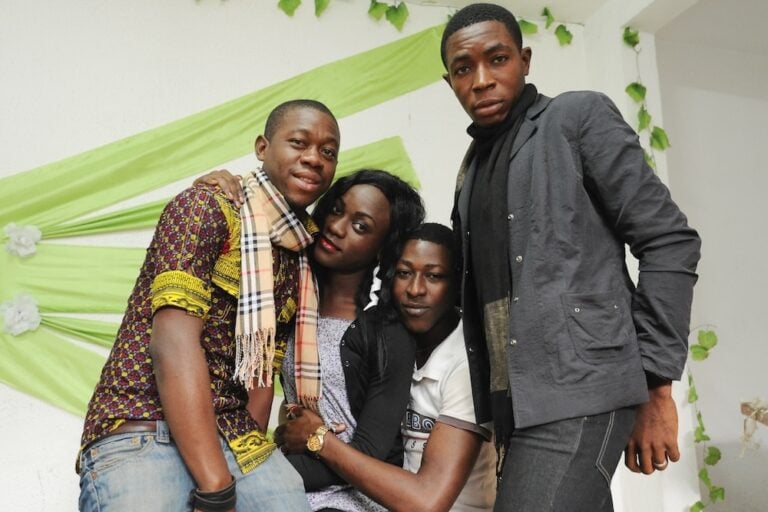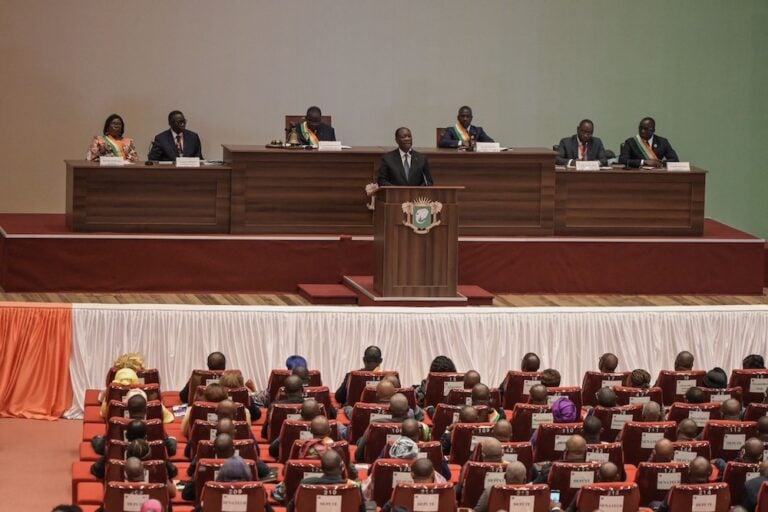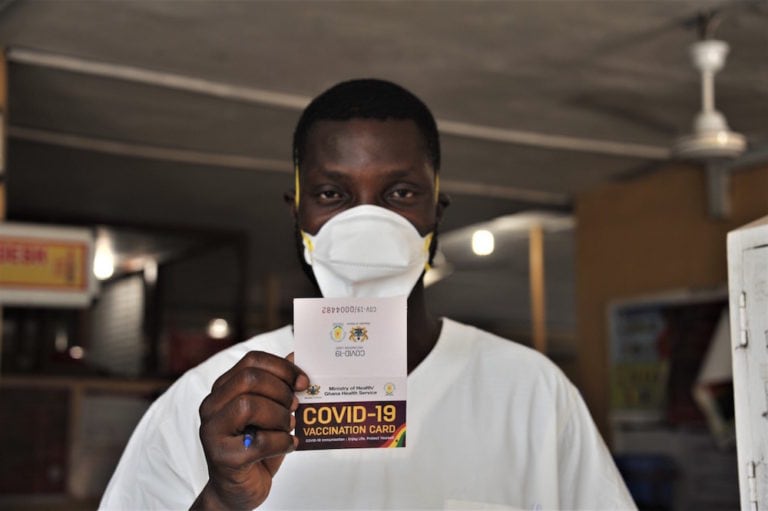(HRW/IFEX) – The following is a Human Rights Watch press release: Côte d’Ivoire: End Impunity for Pro-Government Student Group Government Should Investigate, Punish Those Responsible for Crimes (Abidjan, May 21, 2008) – The government of Côte d’Ivoire should take immediate steps to end impunity for members of a pro-government student group responsible for numerous acts […]
(HRW/IFEX) – The following is a Human Rights Watch press release:
Côte d’Ivoire: End Impunity for Pro-Government Student Group
Government Should Investigate, Punish Those Responsible for Crimes
(Abidjan, May 21, 2008) – The government of Côte d’Ivoire should take immediate steps to end impunity for members of a pro-government student group responsible for numerous acts of violent, criminal behavior, Human Rights Watch said in a report released today.
Since 2002, when a failed coup attempt plunged the country into a political and military crisis, the Student Federation of Côte d’Ivoire (Fédération Estudiantine et Scolaire de Côte d’Ivoire, FESCI), alternatively described as a “pro-government militia” and a “mafia,” has been responsible for politically and criminally motivated violence, including murder, assault, extortion, and rape. Attacks have often targeted perceived opponents of the ruling party, the Popular Ivorian Front (Front Populaire Ivoirien, FPI).
“For years, the government of Côte d’Ivoire has demonstrated a sustained and partisan failure to investigate, prosecute or punish serious criminal offenses by FESCI members,” said Corinne Dufka, West Africa director at Human Rights Watch. “The impunity enjoyed by groups like FESCI has got to stop now in order to create a climate conducive to peaceful elections.”
The 98-page report, “‘The Best School’: Student Violence, Impunity, and the Crisis in Côte d’Ivoire,” documents how, in the last several years, members of FESCI have been implicated in attacks on opposition ministers, magistrates, journalists, and human rights organizations, among others. According to interviews with victims and eyewitnesses, the student group has killed, raped and severely beaten students perceived sympathetic to the northern-based rebellion or the political opposition.
In addition, FESCI is routinely associated with “mafia”-type criminal behavior including extortion and protection rackets involving merchants working in and around university and high school facilities. In tandem with other pro-government youth groups such as the Young Patriots, FESCI members have been repeatedly mobilized since 2002 to stymie Côte d’Ivoire’s peace process at key junctures to the benefit of the ruling FPI party. FESCI’s actions both on and off campus have seriously undermined freedoms of speech, assembly, and association.
Human Rights Watch based its findings on a five-week investigation in Abidjan and Bouaké. The report describes FESCI’s roots and actions, together with the government’s complacency, and at times complicity, in the violence and crimes perpetrated by FESCI members.
In interviews with Human Rights Watch, police, professors, and students spoke of the unwillingness of state security forces to intervene in the face of criminal conduct by FESCI members. A police officer interviewed by Human Rights Watch expressed frustration at what he perceived to be his inability to take action against FESCI-perpetrated abuses: “Today, FESCI does what it wants and nothing happens. They benefit from total impunity. Members of FESCI are never punished and they never will be, because those in power support them. We know those among them who have killed, stolen, and beaten, but we can’t do anything against them in the current system.”
Several members of the university professors’ union interviewed by Human Rights Watch described the effect violence by FESCI has on campus: “Regarding freedom of expression, we professors pay attention to all we say and do as concerns FESCI. The politicians, police, and army won’t help you if you are threatened by FESCI. FESCI can murder and the investigation will never go anywhere.”
Some FESCI members interviewed for the report appeared to revel in the impunity they enjoy. One student bragged that a simple phone call suffices in many instances to free a member of FESCI in trouble with the police: “If someone gets arrested, say for beating a taxi driver, we go en masse to the police station and announce that we are FESCI and free the person.”
One year ago today, FESCI members stormed and ransacked the headquarters of two of Côte d’Ivoire’s leading human rights organizations, the Ivorian League for Human Rights (Ligue Ivoirienne des Droits de l’Homme, LIDHO) and Actions for the Protection of Human Rights (Actions pour la Protection des Droits de l’Homme, APDH). FESCI targeted the organizations allegedly because of their support for university professors striking for better working conditions. Since then, efforts by both groups to seek justice for the attacks have met with little success.
“The inability of two of Côte d’Ivoire’s most prominent human rights organizations to obtain justice for FESCI-led attacks on their headquarters is symbolic of the injustice faced by many of the student group’s victims across the country,” said Dufka.
The government of Côte d’Ivoire has obligations under international human rights law to respect the rights to life, bodily integrity, liberty and security of the person, and to freedom of expression, association, and assembly. These obligations include acting to prevent and prosecute private actors such as FESCI who are responsible for the infringement of these rights.
In a March 26 interview with Human Rights Watch, current FESCI Secretary General Augustin Mian acknowledged “there have been violence and other problems” and pledged to create a “new, mature FESCI that turns its back on violence.” Human Rights Watch welcomed these statements, and at the same time called on the government of Côte d’Ivoire to take measures to end the impunity that allows violent activity by youth groups to continue undeterred. Actions should include launching an immediate police investigation into crimes that members of youth groups such as FESCI have committed.
“Putting an end to the violence that has become synonymous with university life in Côte d’Ivoire will require long-term commitment by the government, especially the ministries of higher education, interior, and justice,” said Dufka.
For the last eight years, Côte d’Ivoire has been racked by a social, political, and military crisis that has accelerated economic decline, deepened political and ethnic divisions, resulted in the de facto partition of the country between a government-controlled south and rebel-controlled north, and led to a scale of human rights abuses previously unseen in the nation’s post-independence history. Youth groups – pro-government and pro-rebel – have played an important role in the crisis, having both inflicted and suffered from egregious acts of violence. The student group FESCI is the cradle in which most of these youth movements were nurtured.
Since the March 2007 signing of a peace agreement between the government and northern-based rebels, the Ouagadougou Agreement, political tensions throughout Côte d’Ivoire have ebbed, leading pro-government groups such as FESCI and the Young Patriots to adopt a lower profile. Should political tensions rise again, particularly in the lead-up to presidential elections currently scheduled for late November 2008, many political observers fear that these groups will immediately resume the activities for which they became notorious at the height of the crisis.
“The success of the Ouagadougou Agreement in diminishing tensions has created a favorable climate to addressing the longstanding problem of impunity in Côte d’Ivoire,” said Dufka. “The government should take advantage of this opportunity to tackle an issue that not only has a chilling effect on freedom of speech, assembly, and association, but also undermines the rule of law and long-term prospects for peace.”
“The Best School: Student Violence, Impunity, and the Crisis in Côte d’Ivoire” is available at: http://hrw.org/reports/2008/cdi0508/
For more of Human Rights Watch’s work on Côte d’Ivoire, please visit:
http://www.hrw.org/doc?t=africa&c=cotedi


